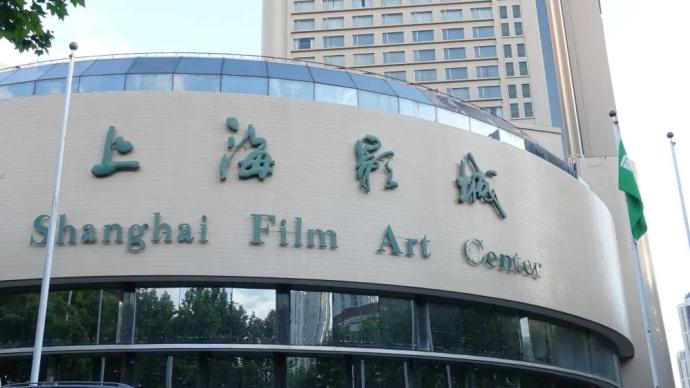
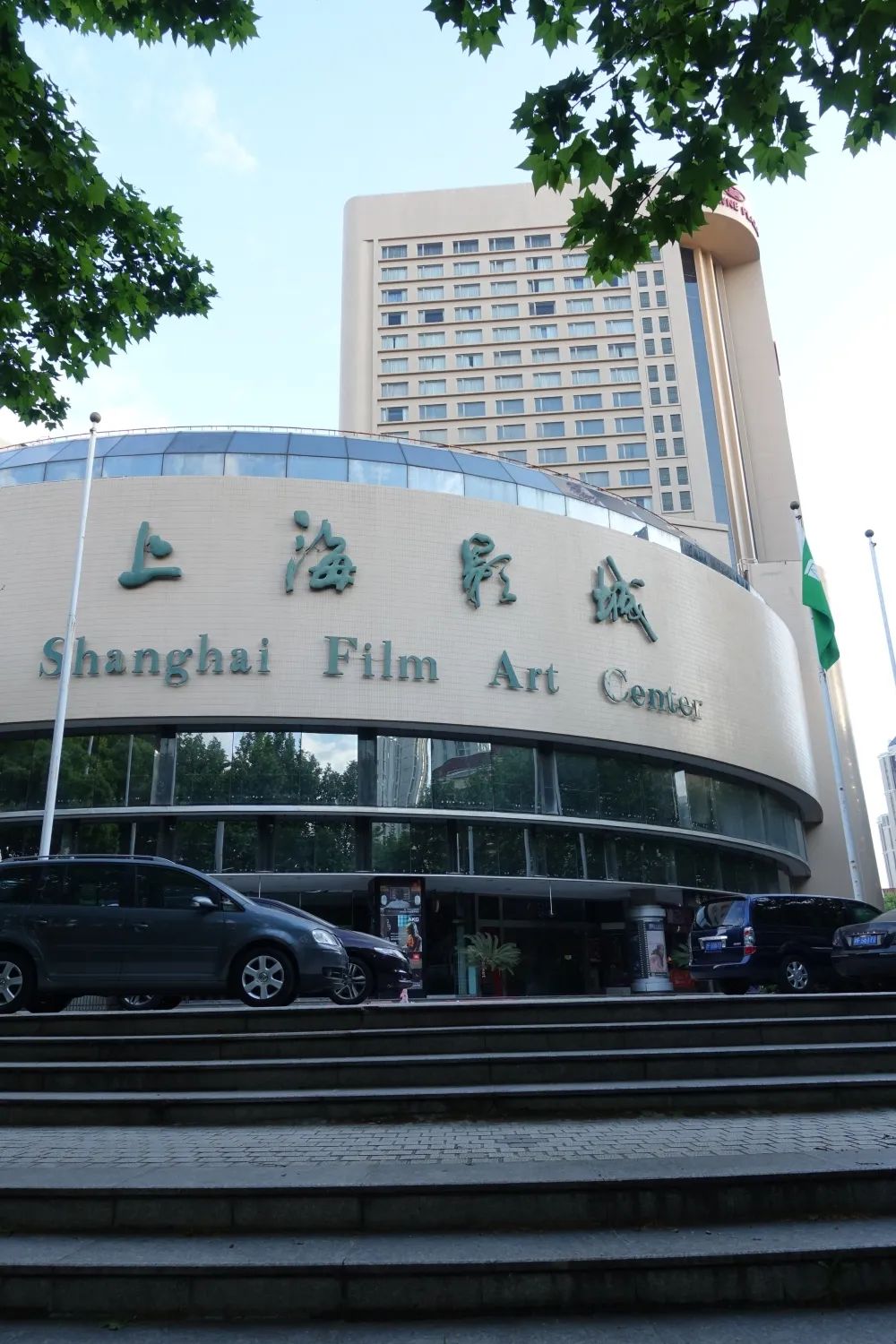
Cinema in the morning light on April 26, 2021. Photography by Yao Zhikang. The pictures in this article are from the Internet unless they are signed.

Screening poster on the last day before the studio closed for renovation.
The construction of the cinema coincides with the pollution control of Xinhua RoadIn 1985, Shanghai launched the first round of urban pollution control. Among the three key areas included in this action, the Xinhua Road area ranked first, and the other two were the Hotan Road area and the Taopu area. Why is the Xinhua Road area ranked first in the pollution control list? According to the records of Changning District Chronicle, there were 111 factories within 2.2 square kilometers of Xinhua Road area at that time, involving more than 10 industries such as chemical industry, metallurgy, medicine, electromechanical, and plastics. The tenth Shanghai Steel Plant, Shanghai Pulp Plant, Xinhua Paper Mill, Xiangyang Chemical Plant, Yan'an Oil Plant, Shanghai Titanium Dioxide Plant, and Changning Battery Plant, which are among the top 10 major pollution sources in Shanghai, are all located in the Xinhua Road area. The various unpleasant odors emitted by the industrial chimneys in this area made the surrounding residents afraid to open their windows, and pedestrians on the road had to cover their noses.
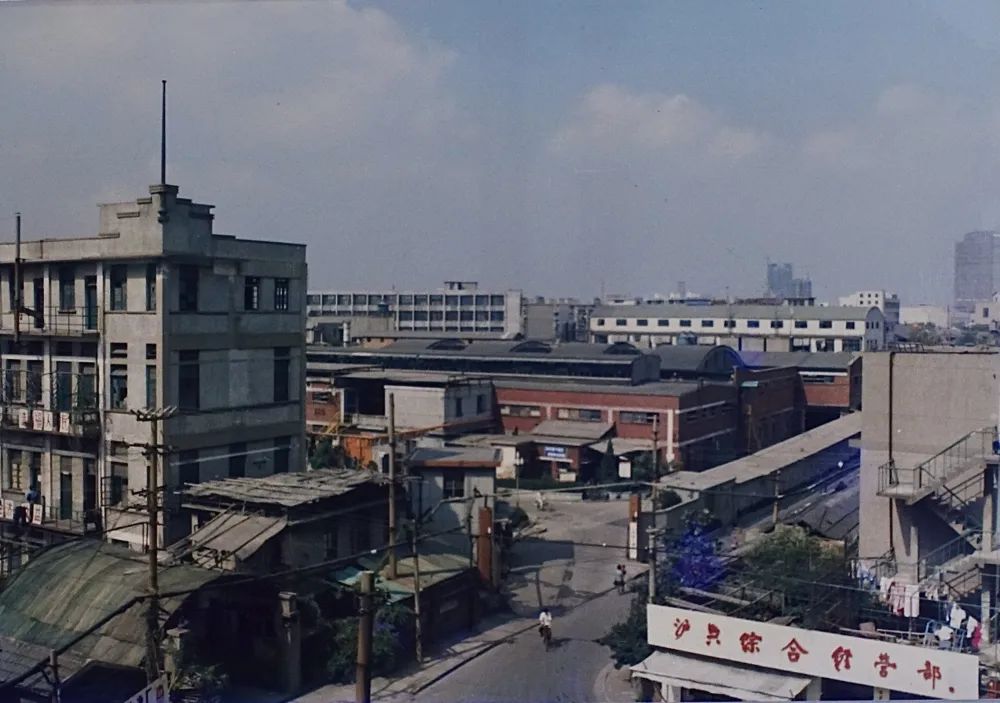
In 1986, the No. 10 Shanghai Steel Plant on the south side of Xinhua Road. Image: Provided by the District Place Name Office
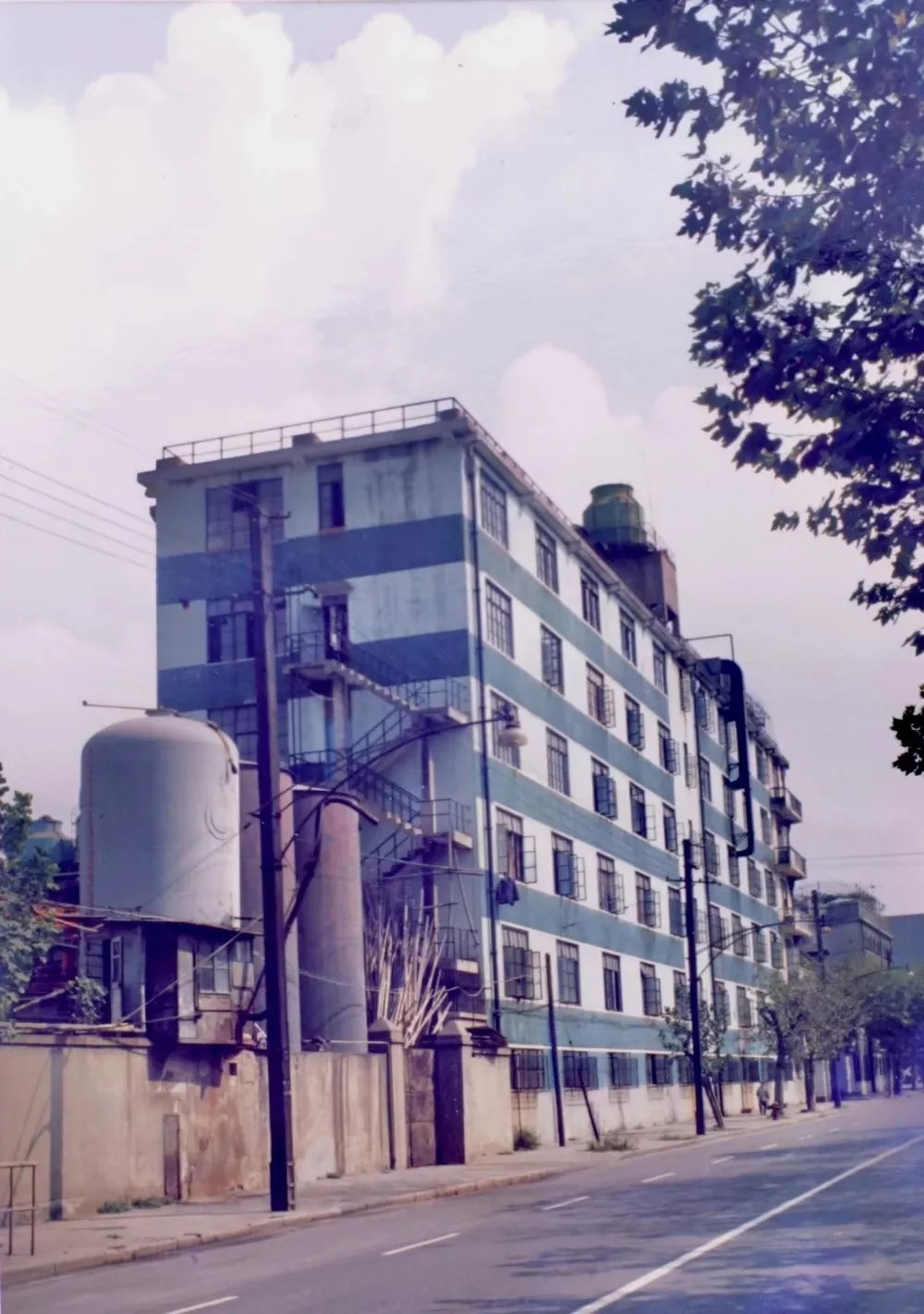
Wuzhou Pharmaceutical Factory on Xinhua Road in the 1980s. Image: Provided by the District Place Name Office
In 1987, the pollution control in the Xinhua Road area was entering a critical stage. The Shanghai Film Art Center (later renamed "Shanghai Cinema"), a major cultural project of the municipal government, selected the plot of No. 160 Xinhua Road. The plot is located in Changning, at the corner of Panyu Road, Xinhua Road. Wooden box factory. Due to the lack of financial resources of the government at that time, it sought foreign capital, and a Hong Kong investment company participated in the project, making this land a cultural and hotel complex project. The studio is in the south of the complex (7 floors) and in the north is the Silver Star Crowne Plaza Hotel (26 floors in the main building). Due to the need to take into account the building volume of the hotel, this original plot with insufficient depth (from Xinhua Road to Fahua Town Road is less than 100 meters) resulted in insufficient retreat between the facade of the cinema gate and Xinhua Road. The "star show red carpet" line at the opening ceremony of the festival was not long enough, and it was awkward to walk. Therefore, when the Shanghai Grand Theater is completed, the opening ceremony will be moved to the Grand Theater.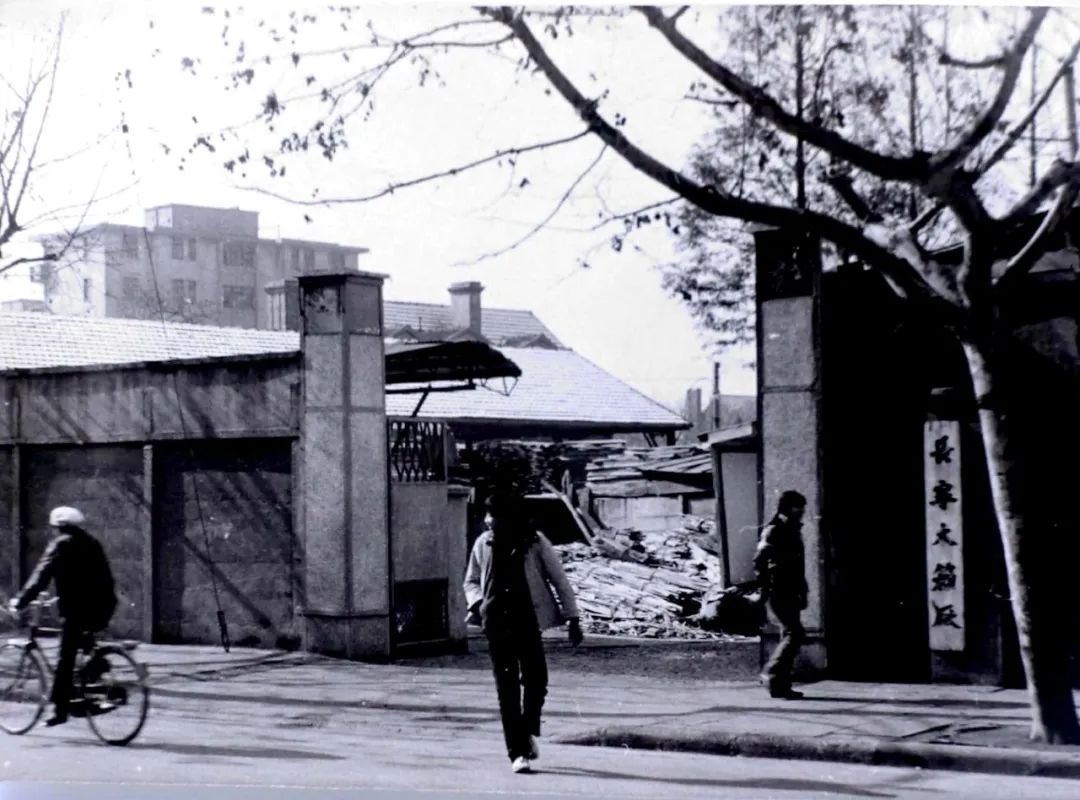
In 1986, the Changning wooden box factory at the Panyu intersection of Xinhua Road. Image: Provided by the District Place Name Office
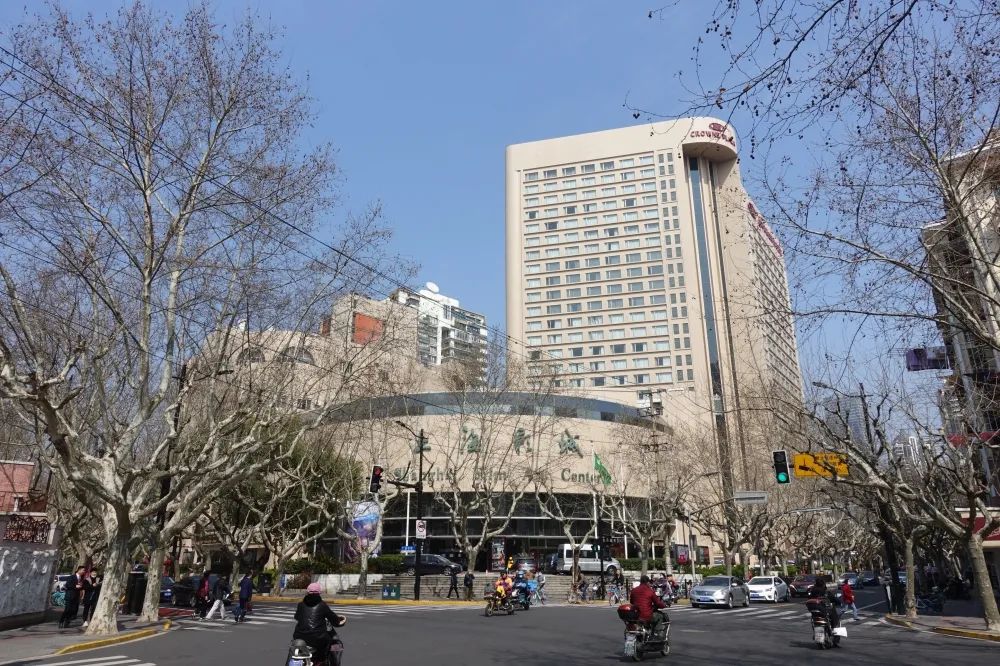
Shanghai Cinema was built on the Changning Wooden Box Factory plot. Photography by Yao Zhikang
The cinema part of this complex building was put into operation on December 20, 1991. The then Deputy Secretary of the Shanghai Municipal Party Committee Chen Tiidi, Deputy Mayor Liu Zhenyuan, and Vice Chairman of the CPPCC Zhang Ruifang attended the inauguration ceremony. The hotel part opened on May 2, 1992 and was rated as a four-star hotel. Before the 1990s, Changning District had no decent cultural facilities. The emergence of Shanghai Cinema gave Changning a "city-level model" of cultural facilities, and naturally became a "cultural landmark" in Changning.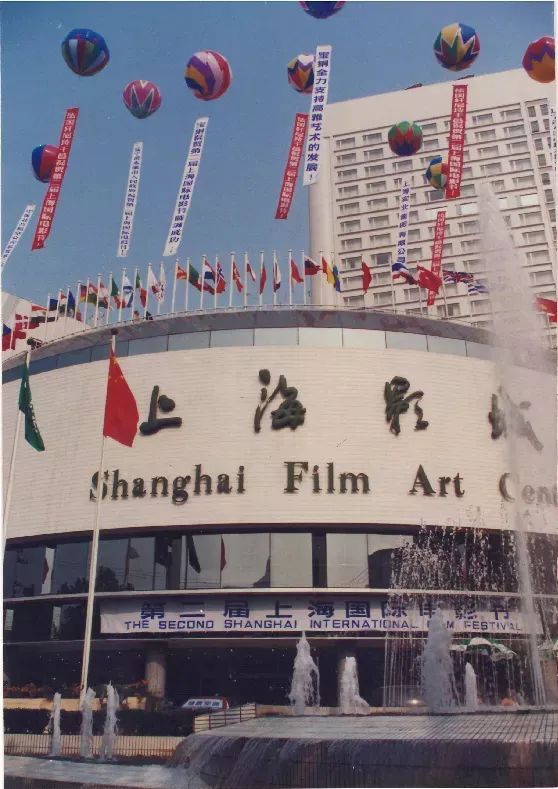
In 1994, the second Shanghai International Film Festival film city location.
The studio opens a multi-screen movie screeningWhen the Shanghai Cinema was completed, it already had 5 movie halls and was known as a "movie palace" by the industry. In the era when the whole country was basically all "auditorium-style" single-hall theaters, Shanghai Studios created a precedent for multiple-hall theaters in China. It is precisely because of such a multiplex cinema that the foundation for holding an international film festival is established.
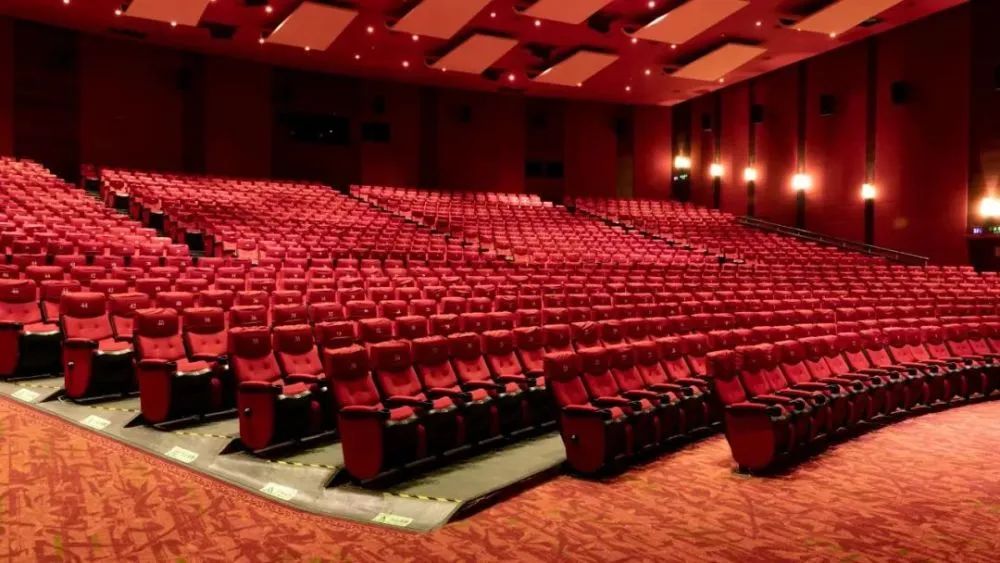
Shanghai Studios Hall 1, also known as the Oriental Giant Screen Hall.
Before this "renew and upgrade", Shanghai Studios has undergone many "small renovations". First, a conference room was used on the 4th floor to transform into 6 screening halls; the original karaoke karaoke hall on the 5th floor was transformed into 7 screening halls; an 8 hall was developed next to the lobby on the first floor; a 9 hall was set up next to the first hall on the second floor. . Hall 1 has 1118 seats, with a screen width of 22 meters and a height of 10.5 meters. The sound effect is designed with reference to the international THX technical standard. The total power of the 18 top digital cinema power amplifiers reaches 30,000W, which is the highest in the country. Equipped with SDDS eight-channel full digital stereo, SR-D and DTS six-channel digital stereo audio equipment, 70mm projector and simultaneous interpretation equipment. The world's top JBL speakers are distributed around and on the top of the auditorium, and its audio-visual effects are first-class in China.In 2014, Hall 1 of the cinema was upgraded to the "Oriental Giant Screen Hall", which is the first cinema in the world to use high-brightness multi-primary laser light sources for movie projections. In 2016, when Ang Lee's "Billy Lynn's Halftime Battle" was released, only 5 cinemas in the world can play the 120fps/4K/3D version, and Shanghai Cinema is one of them.

On November 11, 2016, Ang Lee's 120-frame "Billy Lynn Halftime Story" was released in the studio.

Ang Lee's "Gemini Man" released at Shanghai Studios on October 18, 2019.
The 9 halls are not only different in size, but also in function. Hall 1 is undoubtedly the representative and "soul" of the studio, which can be called the "ceiling of movie projections". Hall 4 is the viewing hall for academic materials. There are often viewing and screening missions of films from the Art Film Alliance and the Shanghai Film Archive. It is a secret base for senior movie fans. Halls 6 and 9 are VIP halls, which will meet the customized viewing needs of some groups.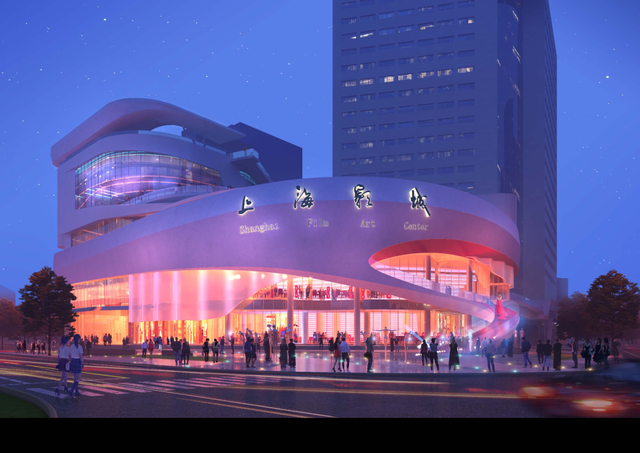
Rendering of the new and upgraded Shanghai Cinema.
There are cinemas and then there are international film festivalsMovie fans all know that the first international A-category film festival in China is the Shanghai International Film Festival. Few people know that the hardware foundation laid by Shanghai Cinema for the Shanghai International Film Festival has become the key to the success of the bid. According to Wang Jiayan, the former deputy general manager of Shanghai Film City, who participated in the preparations for the first Shanghai International Film Festival film trading market in 1993, it was because of the Shanghai Film City that a number of Shanghai films such as Xie Jin, Wu Yigong, Wang Danfeng, and Sun Daolin were introduced. The artist proposed to hold an international film festival in Shanghai. Soon, the application was reported to the International Film Producers Association, and the then chairman of the association, Beresong, came to Shanghai for a field inspection in early 1993. He visited Shanghai Studios and several other cinemas, including Daguang and Cathay Pacific, to determine that the facilities here could host international film festivals. The first Shanghai International Film Festival was held in October of that year (later changed to every June). This is the origin of the "Shanghai Cinema First, and then the Shanghai International Film Festival".

Wang Jiayan is very famous, and he is nicknamed by the industry and fans: "Four-eyed Pharaoh"
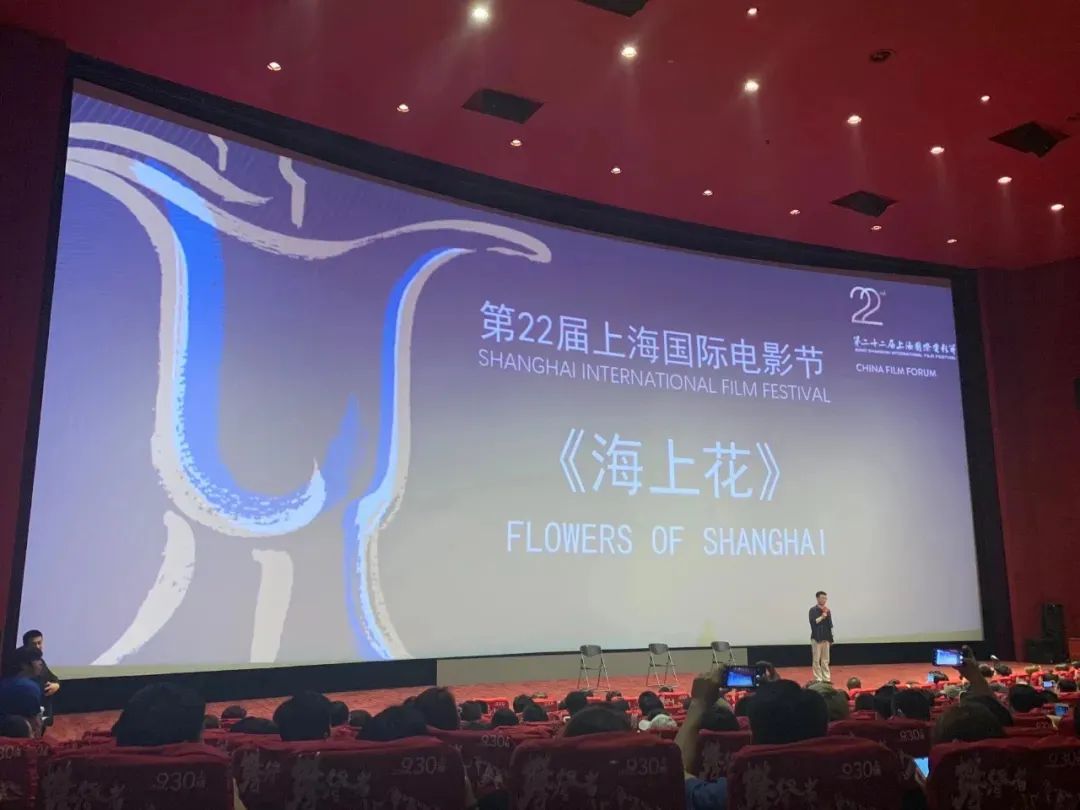
At the 22nd Shanghai International Film Festival in 2019, Taiwanese director Hou Hsiao-hsien's "Flowers on the Sea" was screened.
Lao Wang recalled that the trading market work of the first international film festival he participated in was held in the conference room on the fifth floor of the cinema. Only eight film companies including Zhuying, Beiying and Shanghai Film participated, unlike the current Such a large venue, so many film organizations participated. But with the trading market, the film festival takes shape. The jury lineup for the first session was very strong. Xie Jin served as the chairman of the jury, and the judges included Tsui Hark, Oliver Stone, and Nagisa Oshima. After the first session was successfully held, the Shanghai International Film Festival was rated as an international A-category film festival.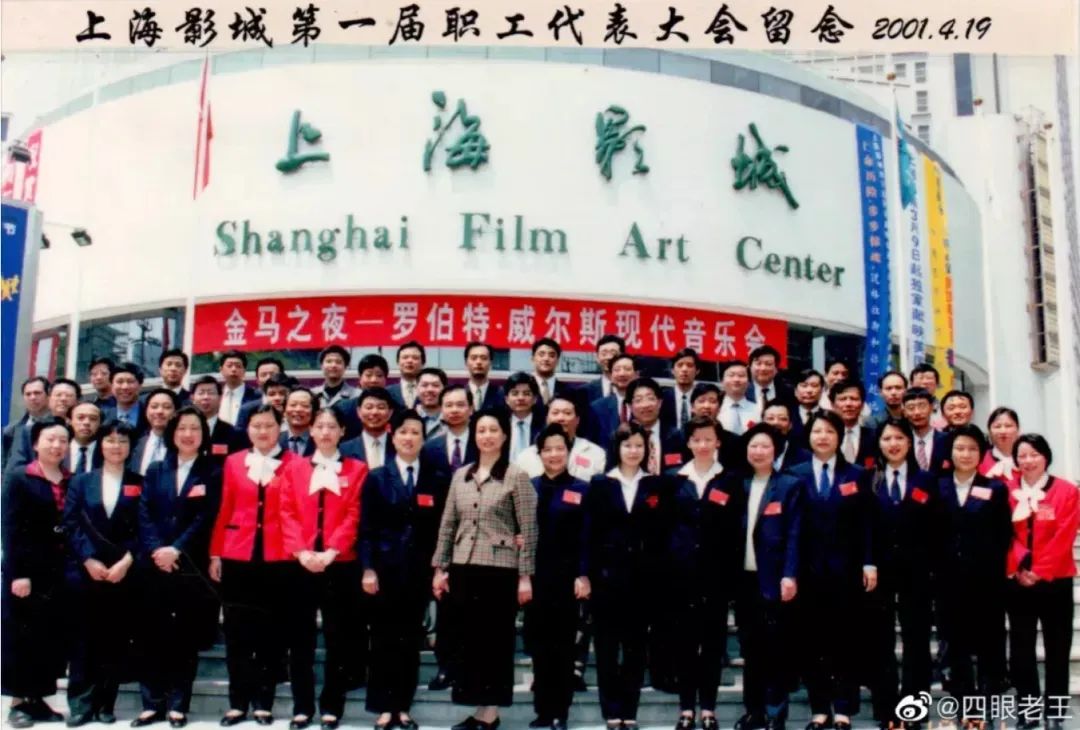
In April 2001, the group photo of representatives of the first workers' congress of the studio.
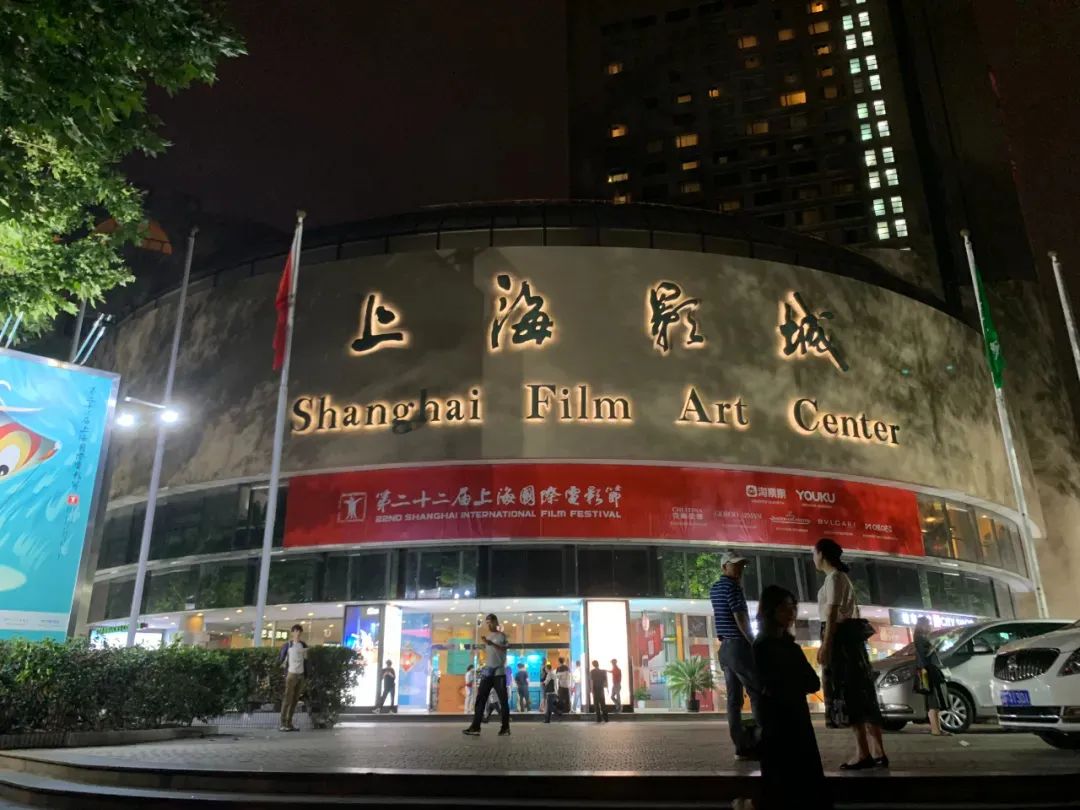
The night scene of the 22nd Shanghai International Film Festival in 2019.
International Film Festival turns into a carnival for movie fansXinhua Road is quiet all year round, but as long as it comes to June, the Xinhua Road area where Shanghai Cinema is located will change its quiet nature and become a gathering place for movie fans to revel. There are always many enthusiastic movie fans lining up at the entrance of the studio on the ticketing day, and there are many movie fans and friends in the Yangtze River Delta area who catch the early morning train to buy tickets. Later, online ticket purchases provided a convenient channel, but fans still like the "ceremonial sense" brought by on-site ticket purchases. Different from other coffee shops, the Starbucks on the first floor of the studio is filled with a group of audiences with the highest professional literacy in film every day, and the film terms such as "montage" and "long shot" often float out of the enthusiastic conversation.
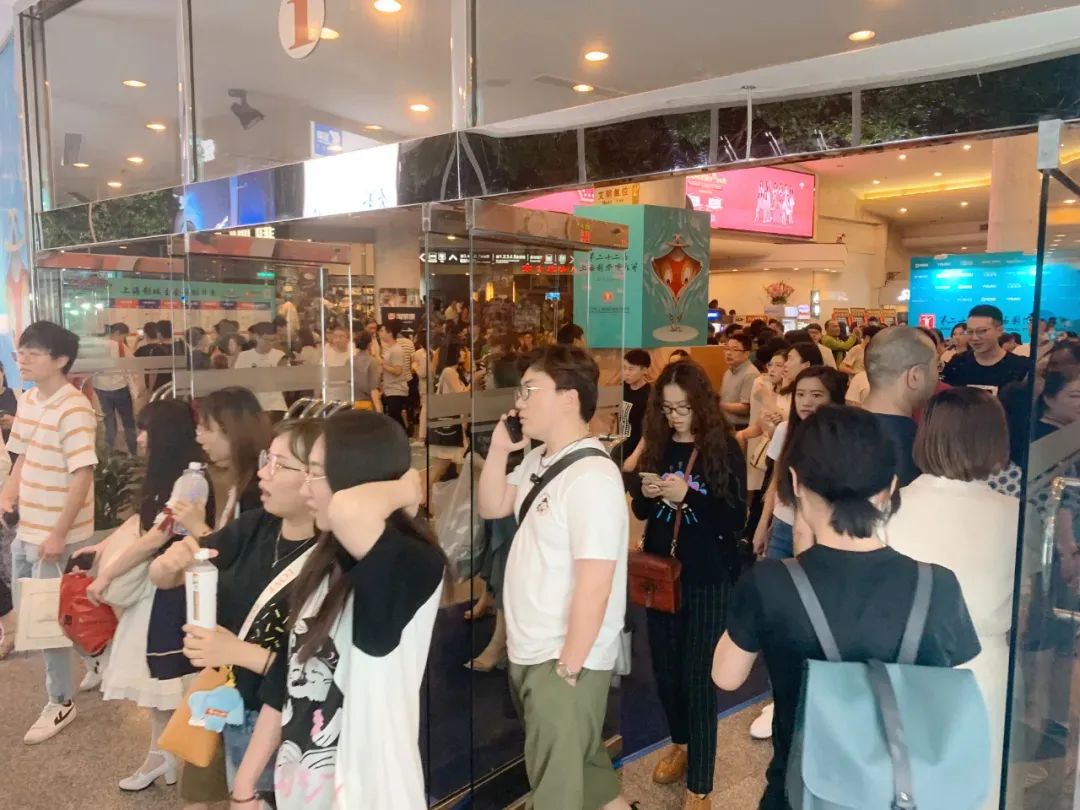
Every time the Shanghai International Film Festival Cinema City is full of crowds.
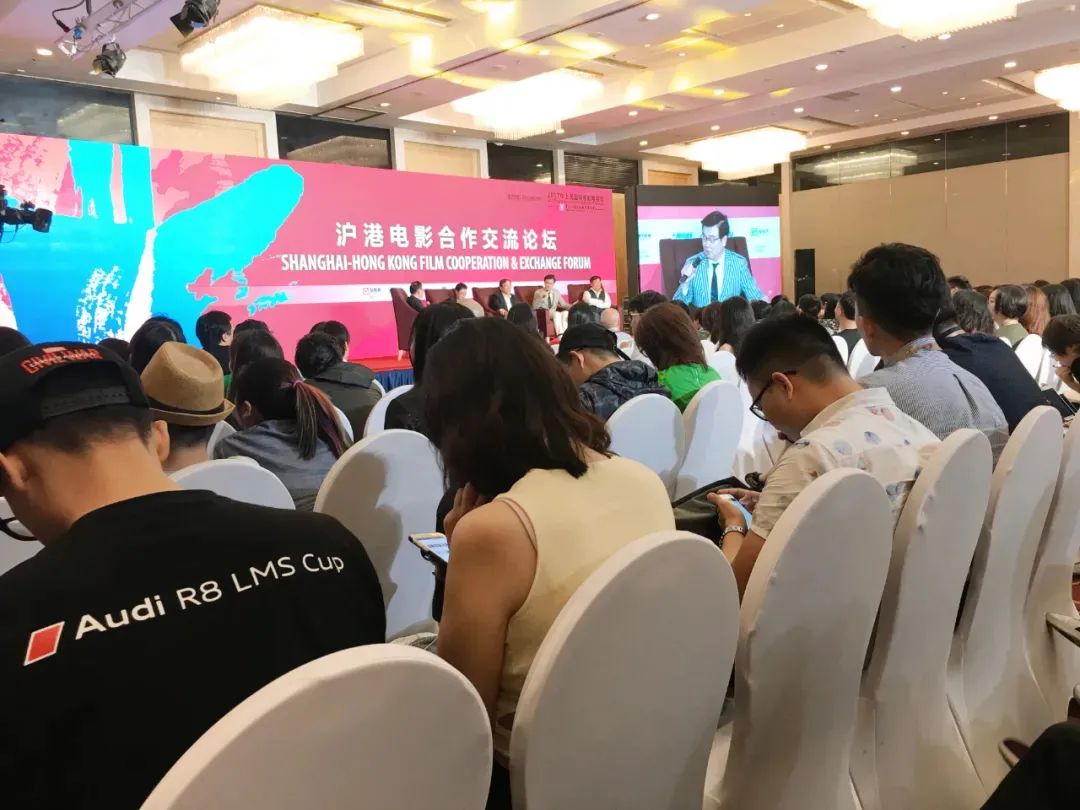
During the Shanghai International Film Festival, the academic exchange activities were packed full.
During the film festival, moviegoers will have an unexpected encounter with a celebrity or an international superstar in the screening hall, elevator room, and aisle. The owner of the "Old Keller" restaurant upstairs in the studio adds a few pictures with celebrities to the wall every year. There is a Zhejiang movie fan who has seen 120 frames of "Billy Lynn's Halftime Battle" in the studio. He is also a loyal audience of the Shanghai Film Festival and has seen many screening films. Another non-local movie fan said on the Internet that he has watched nearly 100 movies in the Oriental Giant Screen Hall in the past six years. The first movie was "Once Upon a Time in America" released in 2015.By 2021, the 24th Shanghai International Film Festival has passed, and it has become one of the largest and most influential film festivals in the Asia-Pacific region. It is a golden business card for "Shanghai culture" to go global.
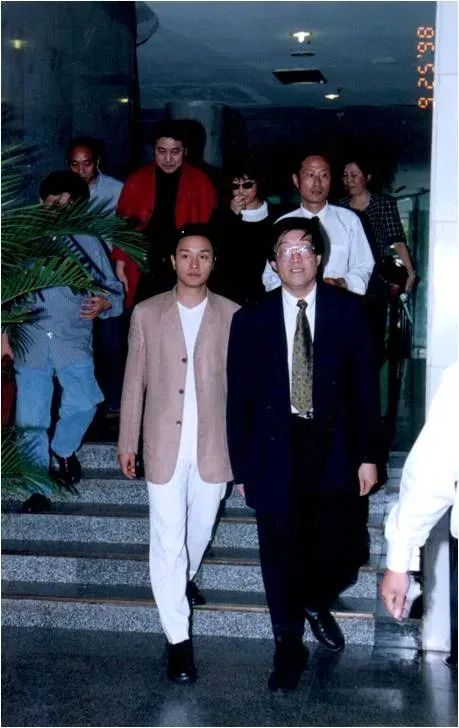
Wang Jiayan (right) receives Leslie Cheung
The first choice for the premiere of Chinese and foreign blockbustersWhether it is during the Shanghai International Film Festival or on normal days, Shanghai Cinema has always been the most anticipated and recognized premiere venue for domestic and foreign filmmakers in Shanghai. The premiere of the Hollywood blockbuster "Wonder Woman" released in 2017 was held in Shanghai Cinema. At that time, director Patty Jenkins, producers Zach Snyder and Deborah Snyder, as well as starring Gal Gadot, Chris Pine and other luxurious creative lineups all appeared on the red carpet and No. 1 of the studio. The hall, star-studded that night. On the red carpet and the premiere, the welcome and questions from Chinese fans made these foreign filmmakers feel warm and professional.
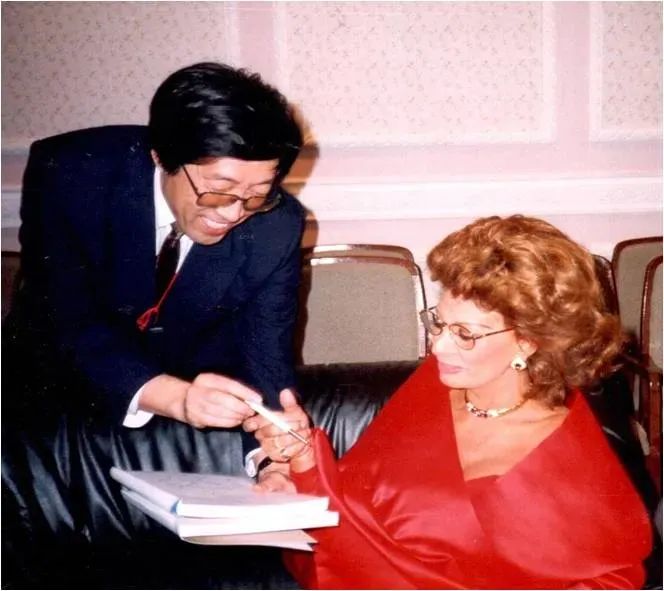
Wang Jiayan asks Sophia Roland to sign
For domestic blockbusters, Shanghai Cinema is also the best choice for holding events, and it can be said to be a "blessed land". Among the top three box-office films in Chinese film history, the Shanghai premieres of the champion "Changjin Lake" and the runner-up "Wolf Warrior 2" were held in Shanghai Studios. On September 30, 2021, "Changjin Lake" held its Shanghai premiere at Shanghai Cinema. Chen Kaige, Tsui Hark, Wu Jing, Hu Jun, Huang Jianxin, Yu Dong, Wang Jianer, Chen Hong and other main creators appeared in Hall 1 and shared the behind-the-scenes stories of the film with the audience.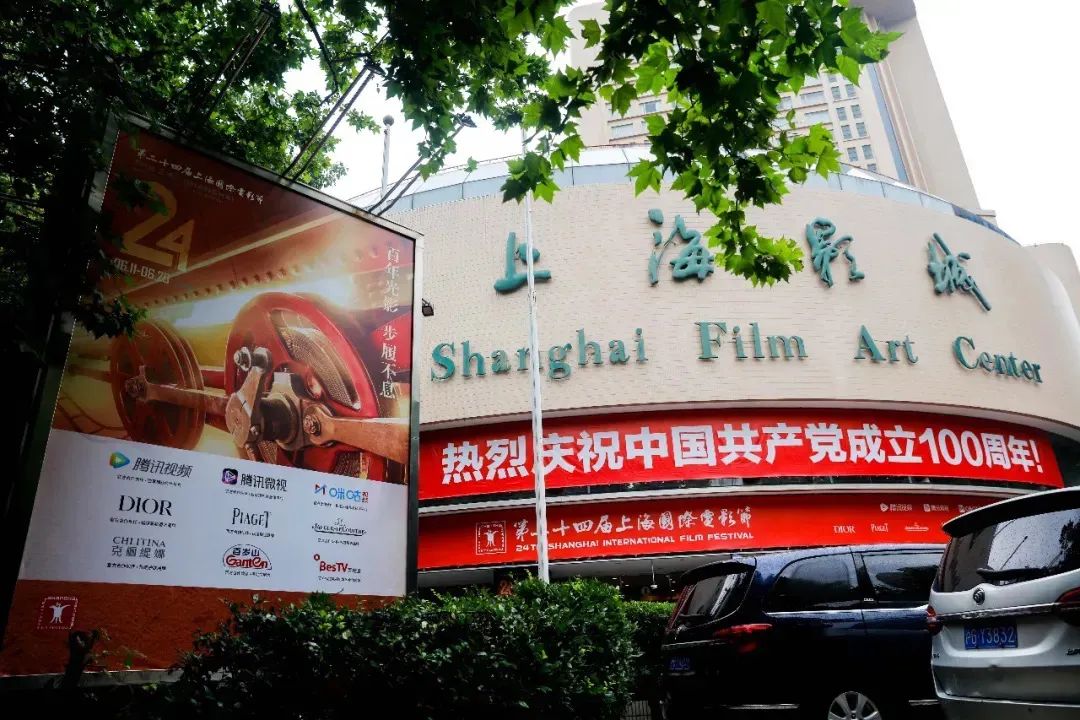
The 24th Shanghai International Film Festival in 2021 coincides with a grand ceremony celebrating the centenary of the founding of the Communist Party.
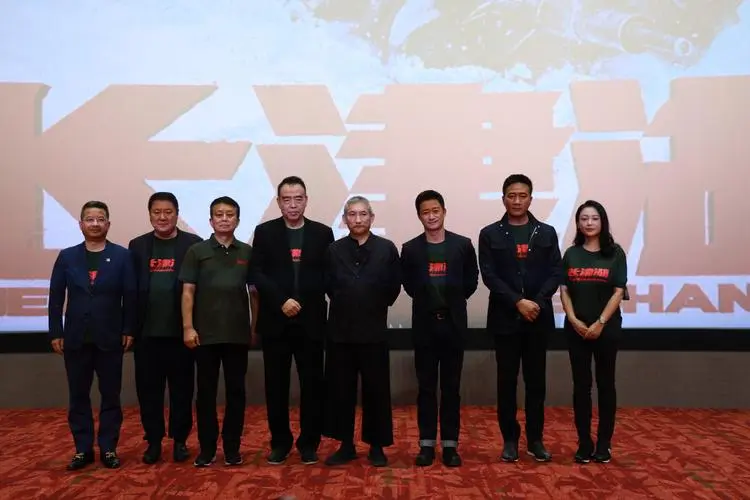
On September 30, 2021, the Shanghai premiere of "Changjin Lake", the main creators met with the audience, the fourth from the left is Chen Kaige, the fourth from the right is Tsui Hark, and the third from the right is Wu Jing.
Cinemas drive the surrounding leisure service industryShanghai Cinema and Xinhua Road historical and cultural area complement each other and complement each other. In December 1991, when the pollution control in the Xinhua Road area was completed, the Shanghai Cinema was born. The Xinhua route has become refreshing and refreshing, but it is deserted. At that time, there was only one "Fengbo Restaurant" opposite the studio, which was said to have been opened by the soprano singer Zhu Fengbo. After the studio opened, it used its own property resources to open restaurants and cafes.
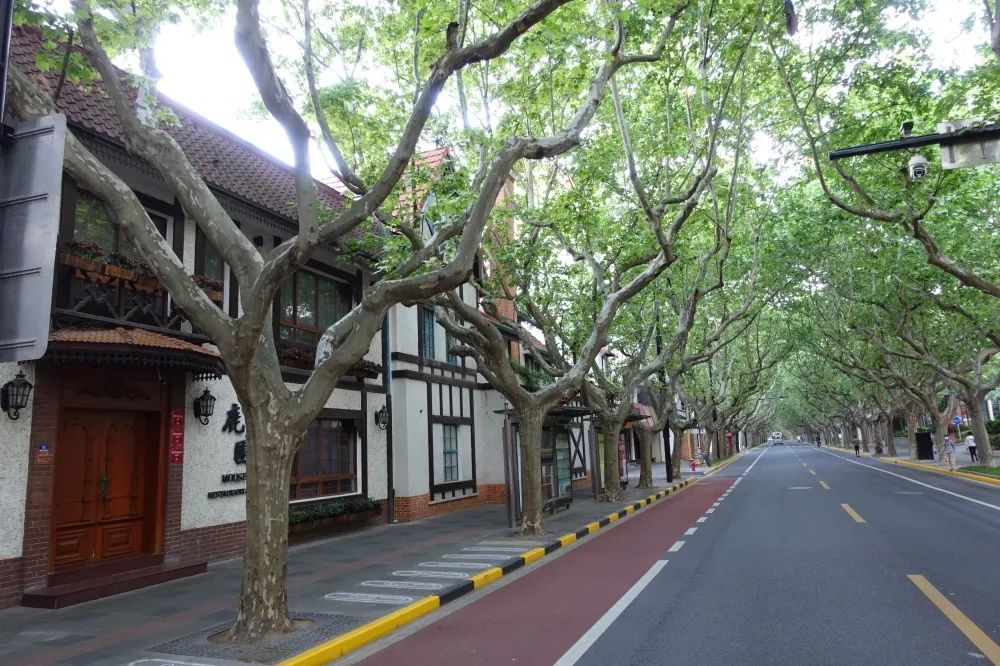
On Xinhua Road west of Panyu Road, Fengbo Restaurant in Zuoyuan has already changed its doors. Photography by Yao Zhikang
With the implementation of the "Regulations on the Protection of Historic and Cultural Areas and Excellent Historic Buildings in Shanghai" from January 1, 2003, the style of the blocks along Xinhua Road has quietly changed. The replacement, development and utilization of old bungalows have been accelerated. Clubs, bars, card bars, restaurants, bakeries and convenience stores have appeared on Xinhua Road one after another, which not only brings convenience to the lives of the surrounding people, but also provides a good place for tourists to relax.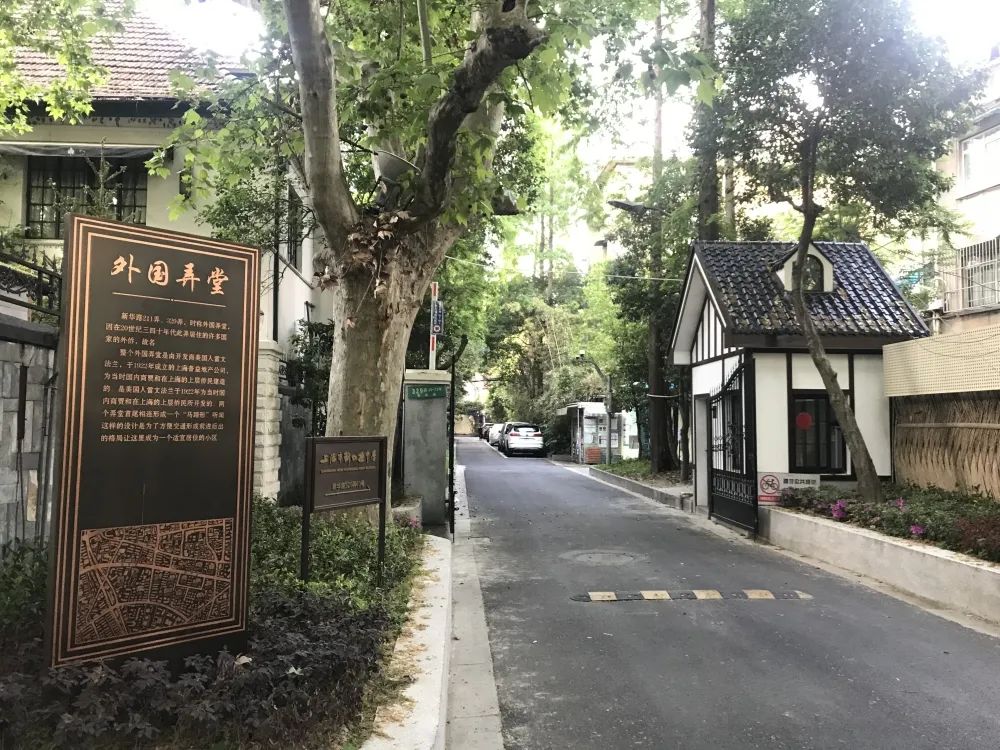
The nameplate "Foreign Alley" is erected at the entrance of Lane 329, Xinhua Road. Photography by Yao Zhikang
This article is from the WeChat public account of "Shanghai Changning Culture and Art Center", and published by The Paper with permission.